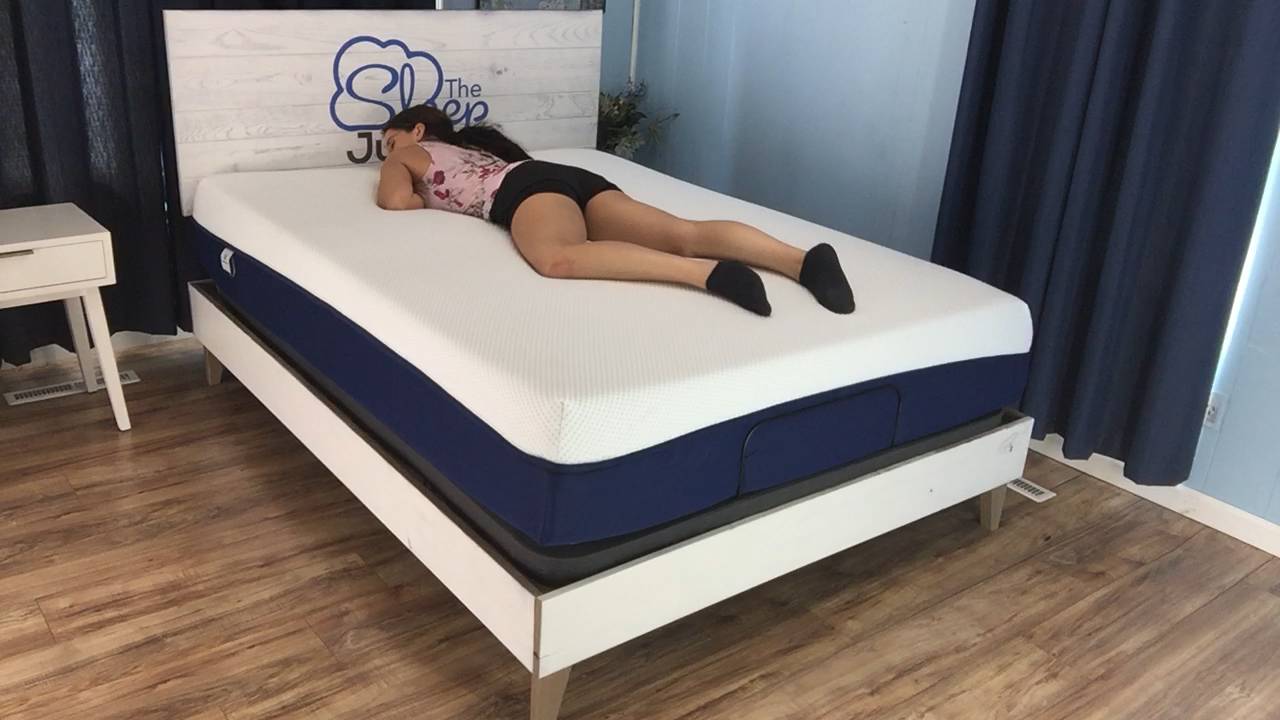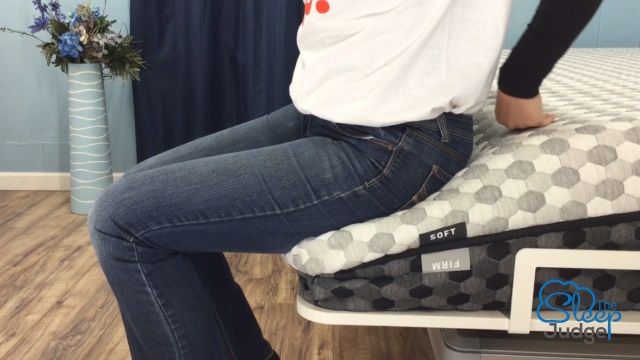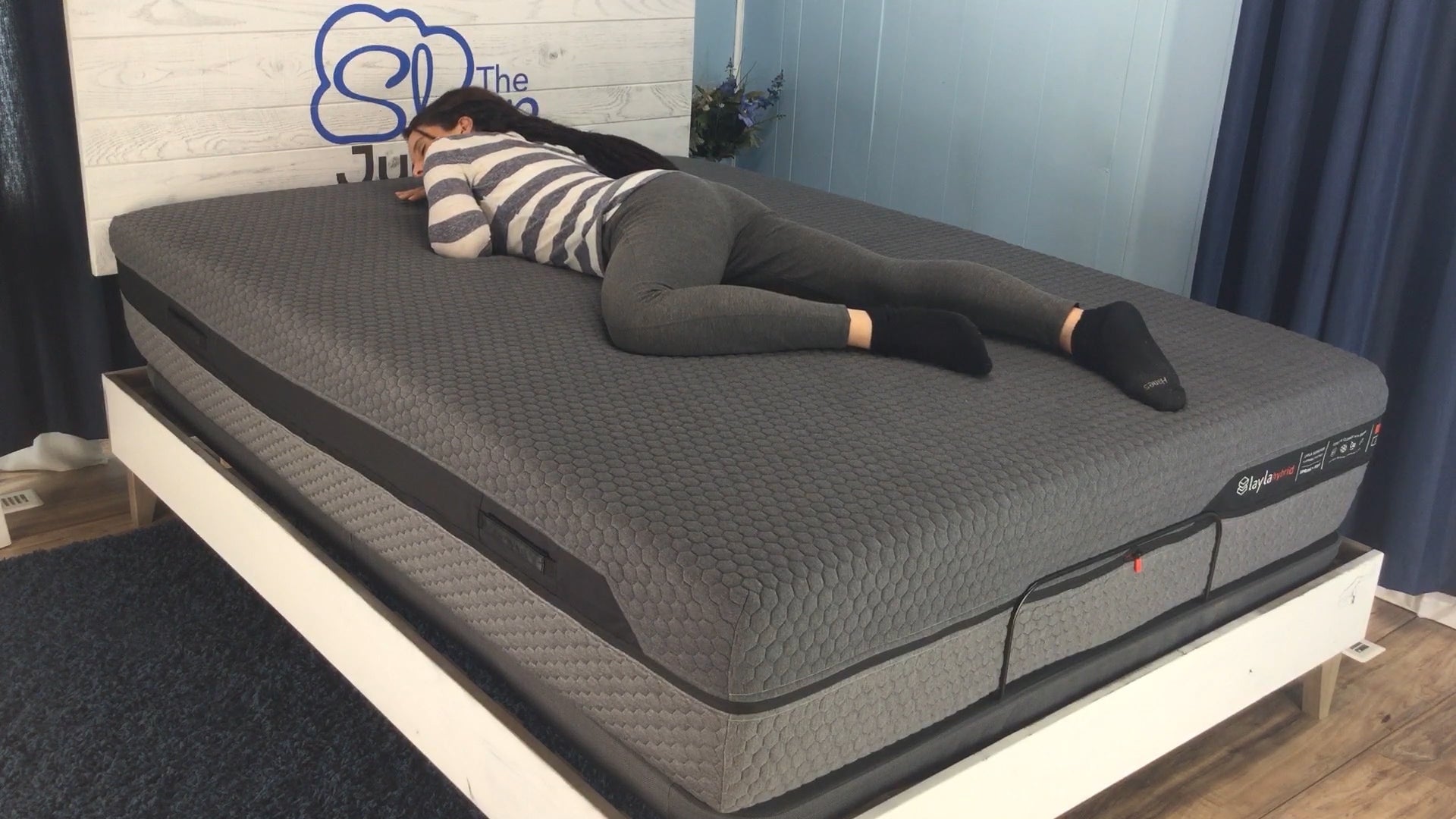
It allows our bodies to recharge and heal, gives our brains the time and means to effectively clear out toxins, and is beneficial for our overall health.
However, there are many things that can keep us from getting our recommended 7-9 hours each night: the wrong bedding, a bedroom that’s too hot, our stress and worries from the day…a mattress that’s not suited to our needs or body type.

If you’re struggling to fall or stay asleep at night—or if you often wake up in the morning with aches and pains—this guide is for you. We’ll discuss the differences between a plush mattress and a firm mattress, laying out the pros and cons of each so you can find the mattress of your dreams.
Overall Feel
Really, this is the most important factor to consider. Unless your mattress is comfortable for you, you’re not going to get a good night’s sleep. Here’s what you can expect from a plush mattress vs. a firm mattress in terms of overall feel.
— Plush
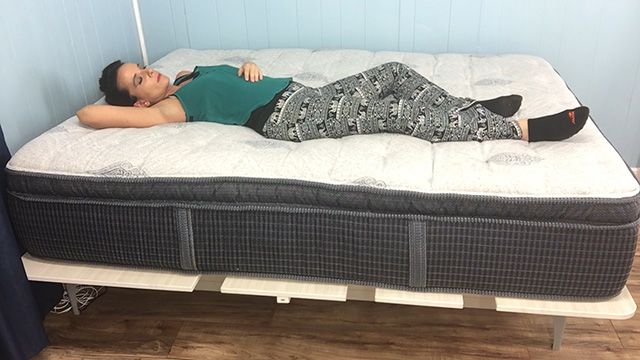
Plush mattresses are known for their soft, cloud-like feel. While lying down or sleeping on a plush mattress, you tend to sink down into it and experience the sensation of being “cradled.”
On the one hand, most sleepers find that they’re more comfortable sleeping on a plush mattress for this very reason. But on the other hand, sleep experts warn that too little support can cause issues with spine alignment and subsequent pain in the back, neck, and shoulders.
— Firm
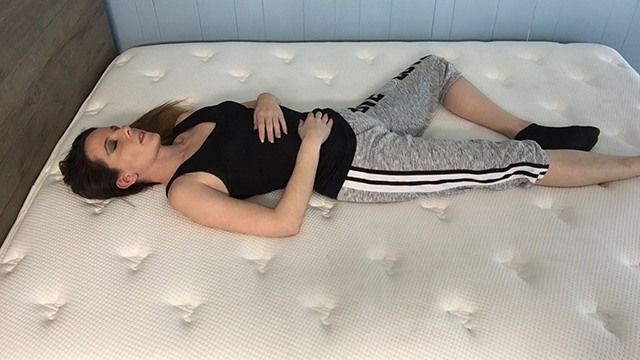
Firm mattresses have less “give,” which equates to more support. This type of mattress features additional support layers and fewer (or thinner) comfort layers.
While some sleepers find the firm mattress uncomfortable or less desirable, this type of mattress does offer better support in general (which means you’ll feel better in the morning!). In addition, there are ways you can counteract the discomfort of a firmer mattress, such as adding a plush “pillow topper” to give you an extra layer of comfort without compromising on support.
• Comfort and Support Layers
A mattress consists of two types of “layers”: support layers and comfort layers.
When it comes to the mattress you choose, the support layers are what matter most. These layers tend to be firmer, and they’re designed to offer the support your body needs to keep your spine in proper alignment.
On top of the support layers are the comfort layers, which essentially determine how “soft” the mattress is. These layers are plusher and offer a greater feeling of comfort.
Plush
Plush mattresses tend to have fewer support layers and more comfort layers, which means they offer a bit less support than firm mattresses do but are generally more desirable in terms of their comfort level.
Firm
Firm mattresses, on the other hand, feature more support layers and fewer comfort layers. This takes away from the comfy “cloud” feeling, but offers much better support.
• Your Sleep Style
There are three basic sleep styles—back, side, and stomach—and the type of mattress you opt for should depend on your preferred sleep style.
Plush
Plush mattresses are best suited to side-sleepers. This is because the softer feel helps prevent pain or discomfort in the shoulders and hips, which side-sleepers put extra pressure on during the night.
However, plush mattresses are not ideal for those who like sleeping on their back or stomach. The sinking feeling can cause back pain and spine misalignment in back-sleepers and feelings of suffocation or neck pain in stomach-sleepers.
Firm
Firm mattresses are best suited to back- and stomach-sleepers. The added support layers give these sleepers less give and more stability, which promotes better spine alignment and keeps back/neck pain at bay.
• Your Weight
Your bodyweight is another determining factor when it comes to choosing a mattress firmness. Generally speaking, the higher your bodyweight, the firmer the mattress you should opt for.
Plush
Those with a lower bodyweight tend to be more comfortable on plush mattresses than their heavier counterparts. This is because the lower the bodyweight, the less “sinking” there will be in the mattress. Naturally, those with higher body weights should probably avoid plush mattresses. The extra give plus the extra weight is a recipe for poor spine alignment and pain the next morning!
Firm
Those with a higher body weight tend to be more comfortable on firm mattresses. A firm mattress will “give” less under their weight and thus promote better spine alignment. Another factor to note here is that a firm mattress can actually be very comfortable for those with a higher body weight; rather than feeling stiff, the mattress will give the person’s body a more “natural” cradling experience.
• Effect on Pain Points
When it comes to your pain points, the only surefire way to know which type of mattress you need is to experiment. While a plush mattress can help alleviate symptoms of arthritis, it can also cause back pain; a firm mattress can prevent back pain by offering better support, but it can be less comfortable and result in aches and pains the next morning. Let’s take a closer look.
Plush
The greatest benefit of a plush mattress in this regard is its ability to “cradle” you. The give of a plush mattress is easy on your joints and helps you sleep comfortably without aggravating pressure points. However, these benefits are most noticeable for those who sleep on their side and those who have a low bodyweight.
Despite their potential benefits, plush mattresses can also cause pain in the back and poor spine alignment. It’s recommended that back- and stomach-sleepers as well as those with a higher bodyweight avoid overly plush mattresses.
Firm
Firm mattresses are known for providing overall better support than plush mattresses, which can reduce or stave off back and joint pain as well as ensure proper spine alignment. This is especially the case for those who sleep on their back or stomach, or who have a high bodyweight.
On the downside, firm mattresses can also result in undue “pushback” on your joints. The firmer, more rigid feel adds pressure to your joints, which results in pain and general discomfort.
Remember: It’s a Spectrum
As you can see, both plush and firm mattresses come with their own set of pros and cons. The best mattress type for you depends on a variety of factors, and no one mattress can meet all of your needs and preferences.
That said, it’s important to remember that terms like “plush” and “firm” are subjective and that there are always firmness descriptions in-between these two extremes. If you aren’t sure which type of mattress to purchase, you might want to consider getting one that’s right in the middle (often called medium or medium-firm). Ideally, this would provide you with adequate comfort while still offering good support.
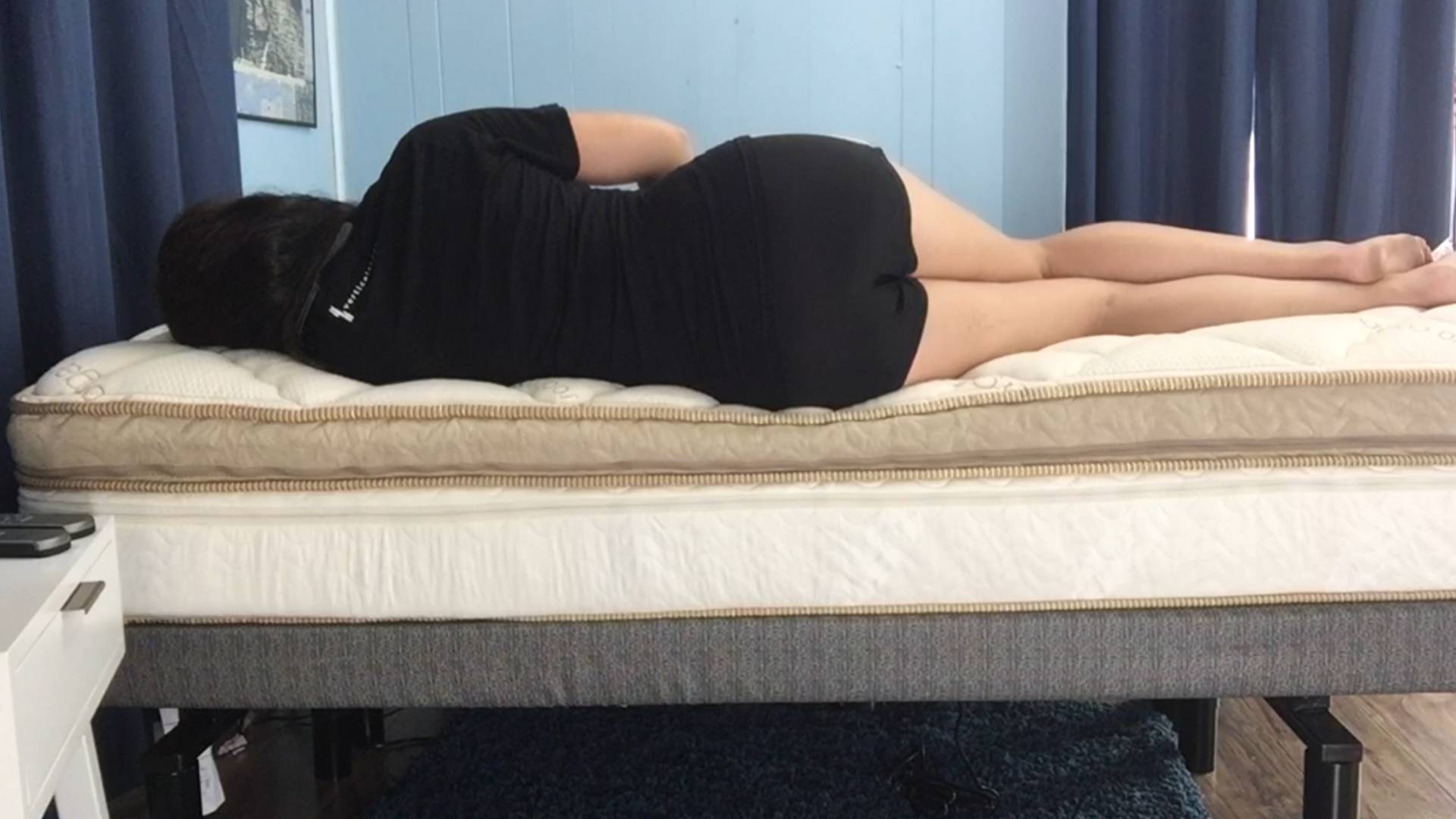
You may also want to experiment with mattresses before making a purchase. Many companies offer free mattress trials, which allow you to purchase the item in order to try it out for a designated period of time; if you decide it’s not for you, you can return it for a refund. This is a great way to become familiar with your different options without needing to commit right away!
On a similar note, it’s likely that you and your partner have different mattress needs and preferences. There are some companies that make mattresses with sides of a different firmness level; this would, for instance, allow you to sleep on the firmer side and your partner on the plusher side. Or, you could simply opt for a medium or medium-firm mattress to give each of you the best of both worlds.
Conclusion
Choosing the best mattress firmness for your needs can be taxing, but we hope this article gave you the information you need to make a good decision. To recap:
| Best for… | Biggest Drawback | |
| Plush |
|
|
| Firm |
|
|
And remember: You can always experiment with different mattress types and look for those that are of medium firmness for the most well-rounded support and comfort.
Now it’s time to start shopping around. We hope you find a mattress that will forever improve your sleep and allow you to wake up pain-free in the morning!
Photo credit: LightField Studios/Shutterstock; Iakov Filimonov/Shutterstock


